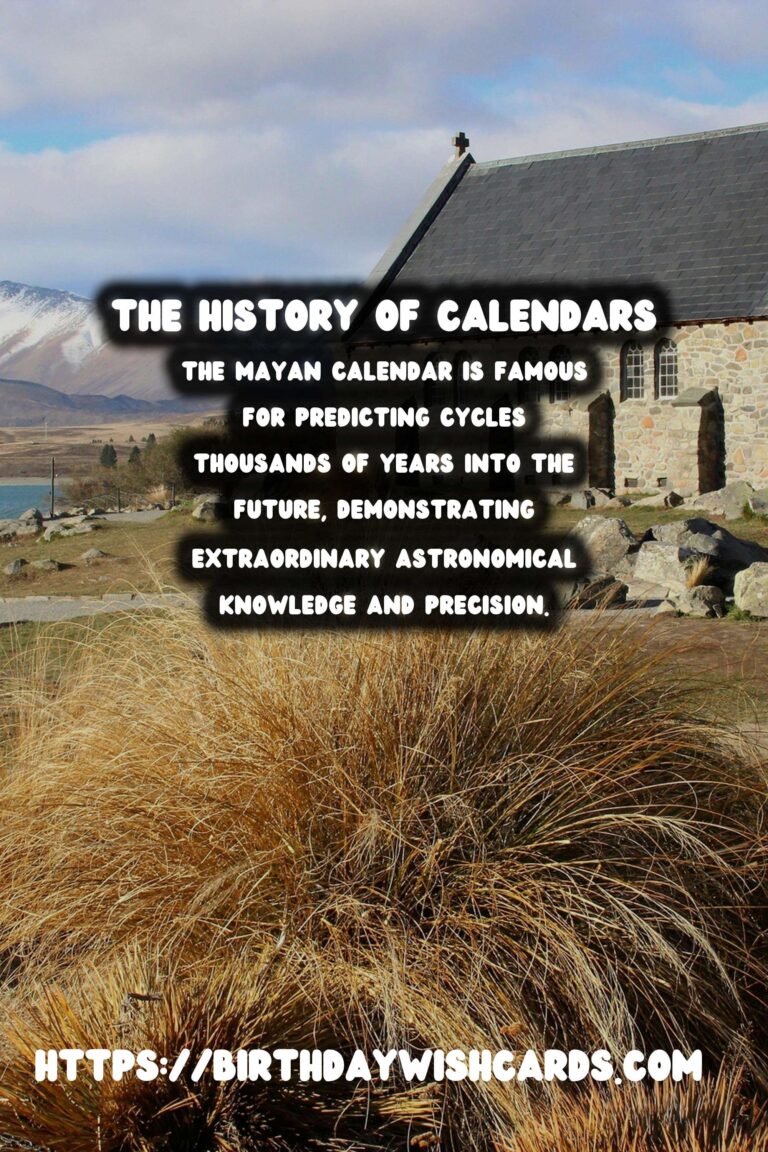
From the earliest days of civilization, humans have sought ways to chart the passage of time. The evolution of calendars reflects not only technological ingenuity but also the cultural and religious priorities of societies around the world. In this article, we will explore the history of ancient calendars, examining key systems and their accuracy.
Early Calendrical Systems
One of the earliest calendar systems was the lunar calendar, which was based on the cycles of the Moon. This system was utilized independently by many ancient cultures, including the Sumerians, Babylonians, and Egyptians.
The lunar month—consisting of one cycle of moon phases from new moon to new moon—remains roughly 29.5 days. This made the lunar calendar relatively straightforward to observe but also naturally out of sync with the solar year, leading to a drift over time.
The Egyptian Calendar
Ancient Egyptians were among the first to develop a solar calendar, which they split into 12 months of 30 days each. To reconcile with the solar year’s actual duration, an additional five days were added annually. The Egyptian calendar’s accuracy was remarkably advanced for its time, serving as the basis for later systems, such as the Julian calendar.
The Mayan Calendar
The Mayans devised one of the most sophisticated calendar systems of the ancient world. Their calendar, known as the Mesoamerican Long Count, included various interlocking cycles. The Mayan calendar is famous for predicting cycles thousands of years into the future, demonstrating extraordinary astronomical knowledge and precision.
The Gregorian Calendar
While the Julian calendar corrected some inaccuracies of earlier systems, it still had a margin of error that accumulated over centuries. In 1582, Pope Gregory XIII introduced the Gregorian Calendar, which adjusted the leap year scheme to more accurately align with the Earth’s revolutions around the Sun. This calendar is primarily in use today and is recognized globally for its precision and reliability.
Conclusion
The history of calendars is a testament to the human quest for understanding time. From lunar cycles to sophisticated astronomical calculations, the progression of calendars reflects humanity’s enduring pursuit of order and accuracy in marking the passage of days, months, and years.
From the earliest days of civilization, humans have sought ways to chart the passage of time. The Mayan calendar is famous for predicting cycles thousands of years into the future, demonstrating extraordinary astronomical knowledge and precision. 
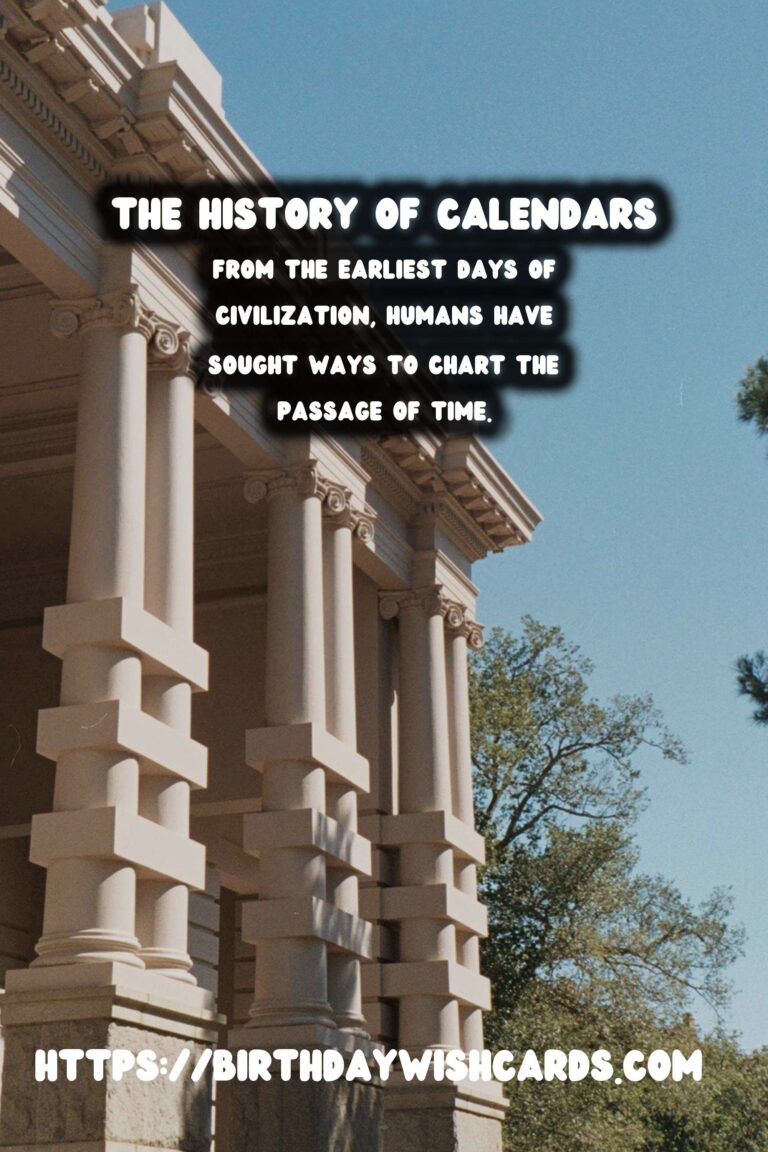
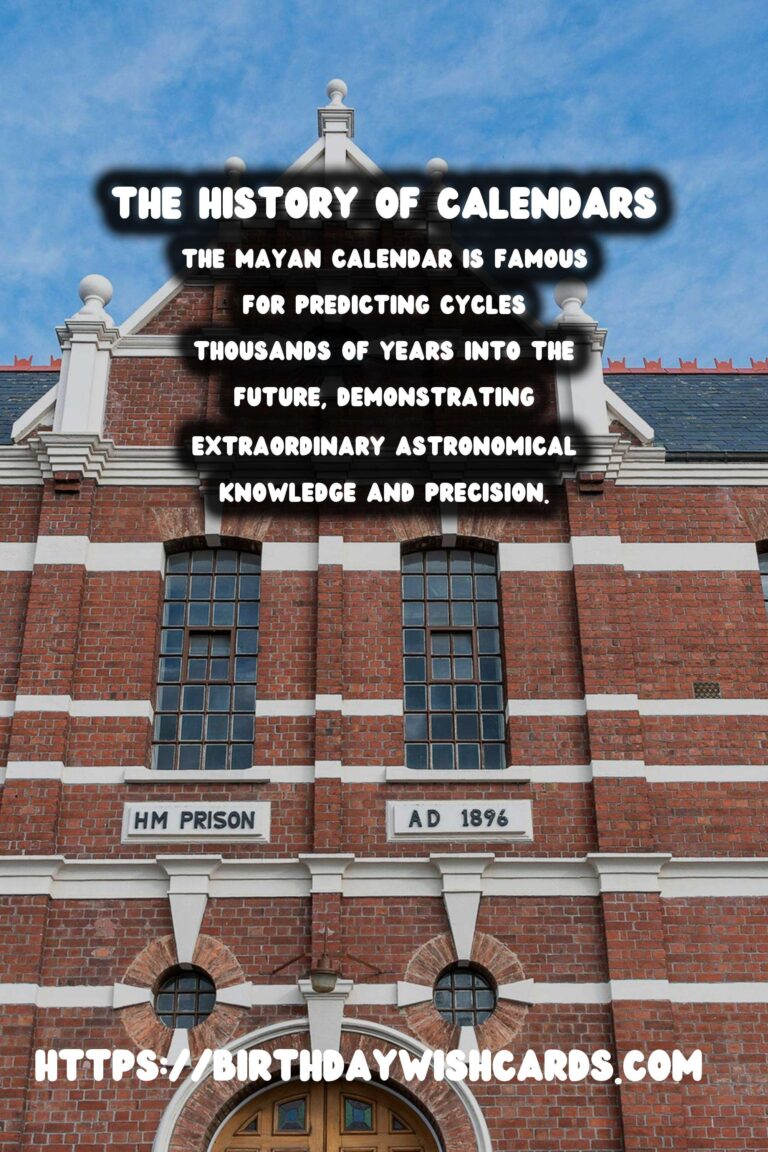
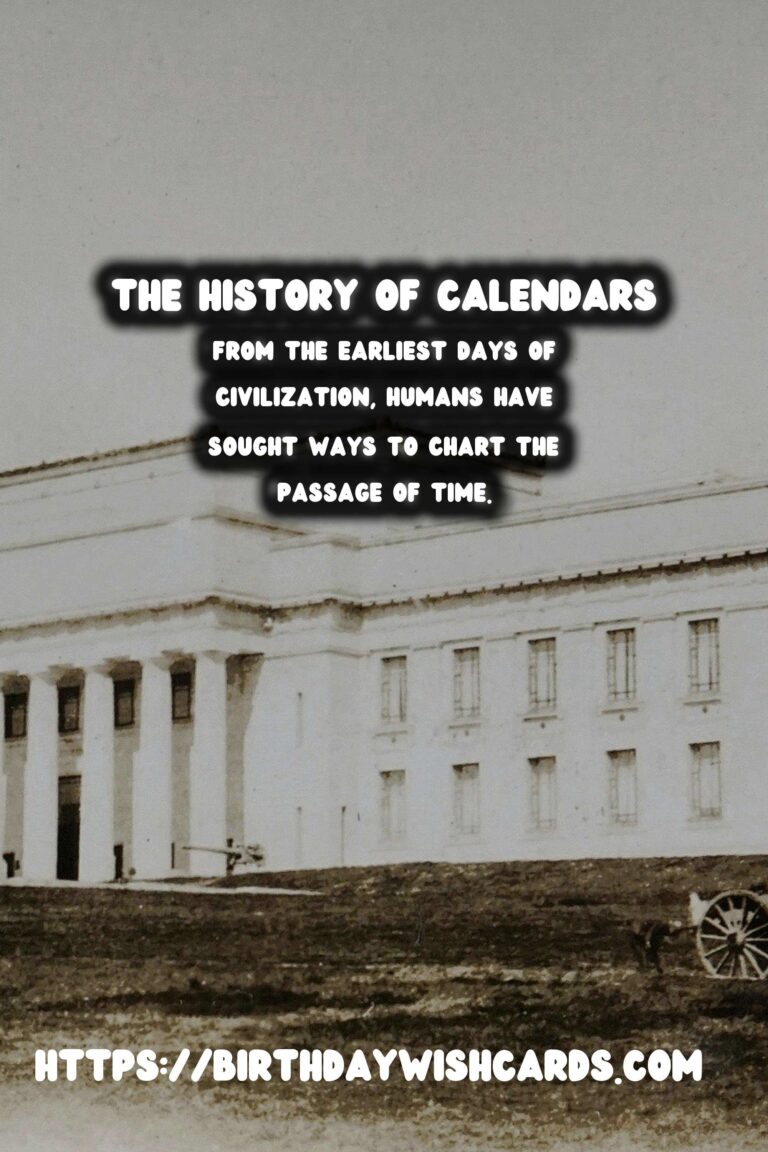
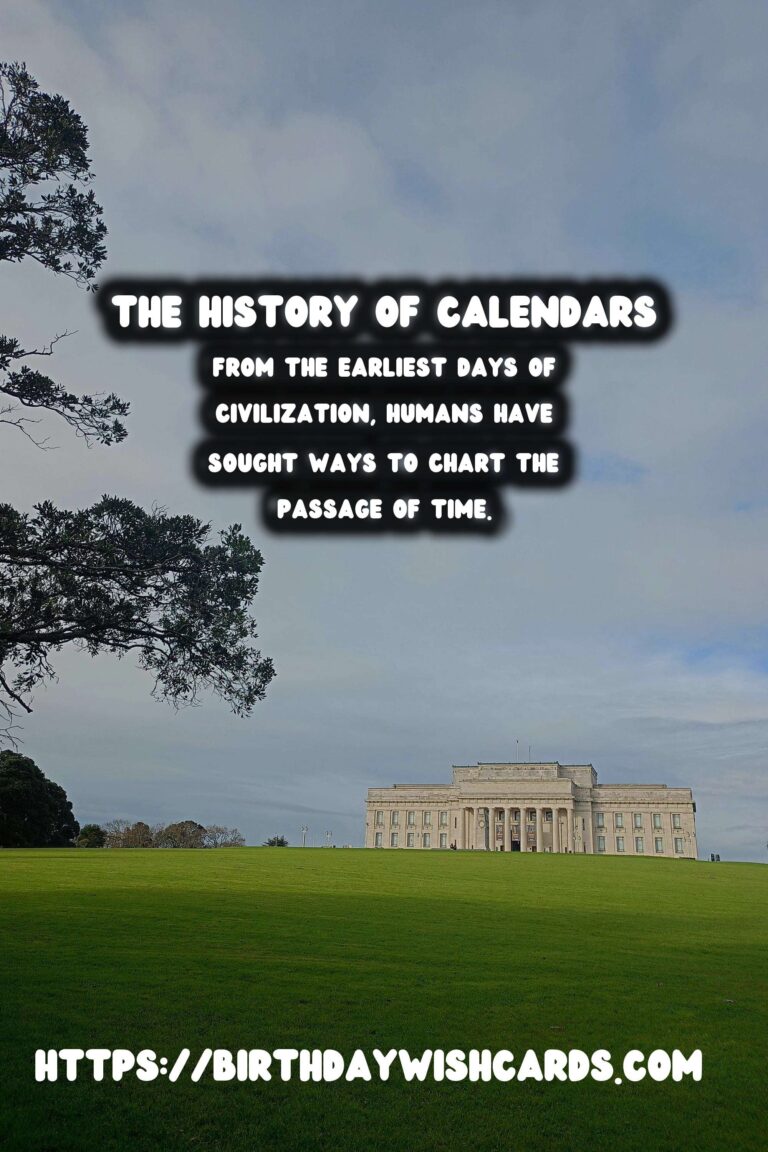
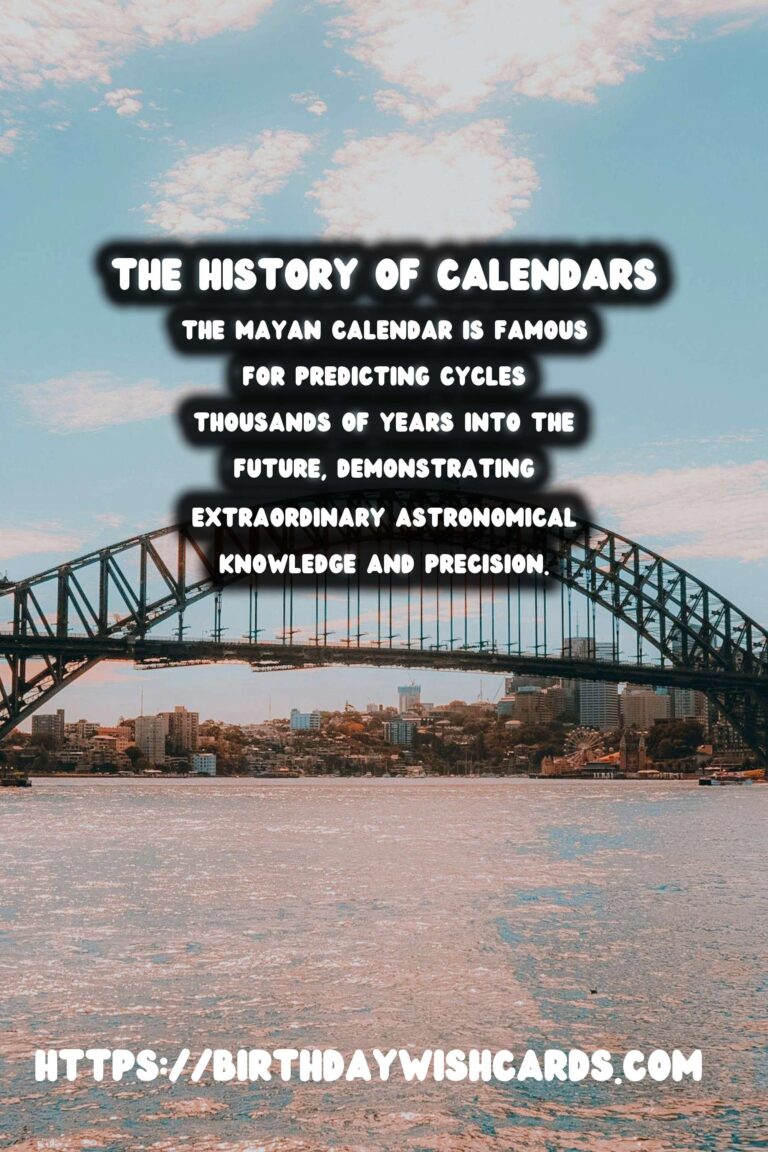
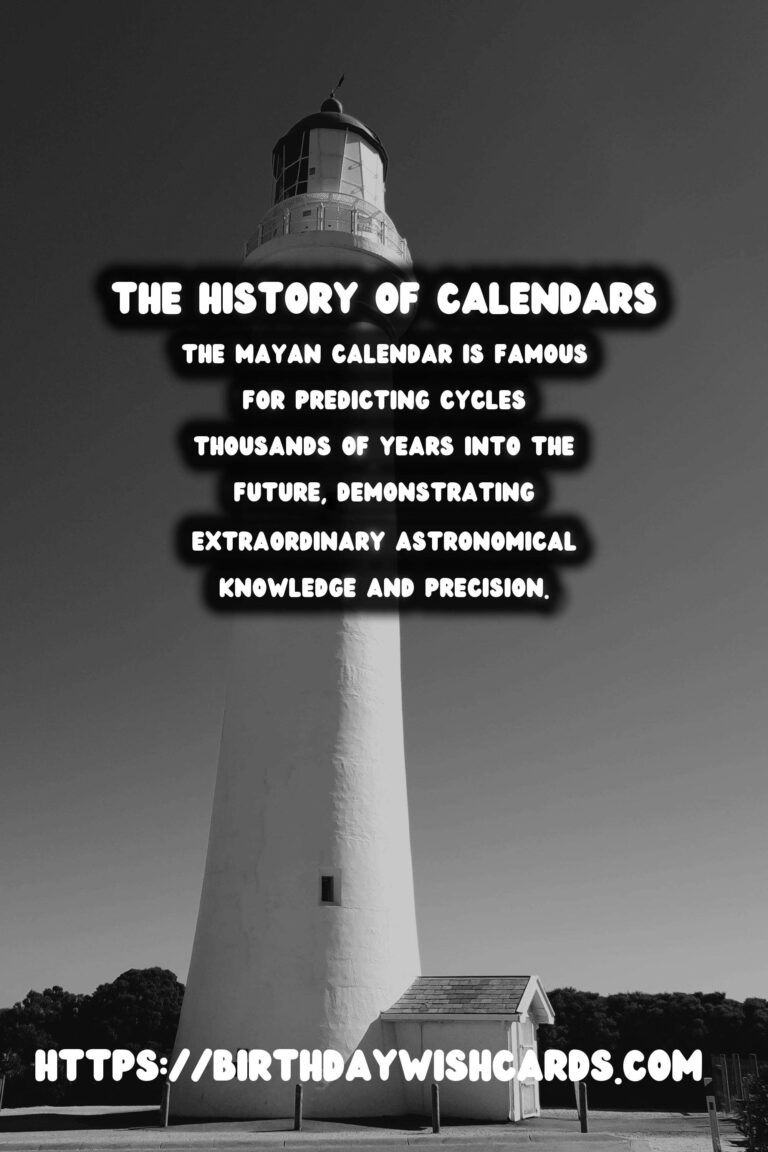
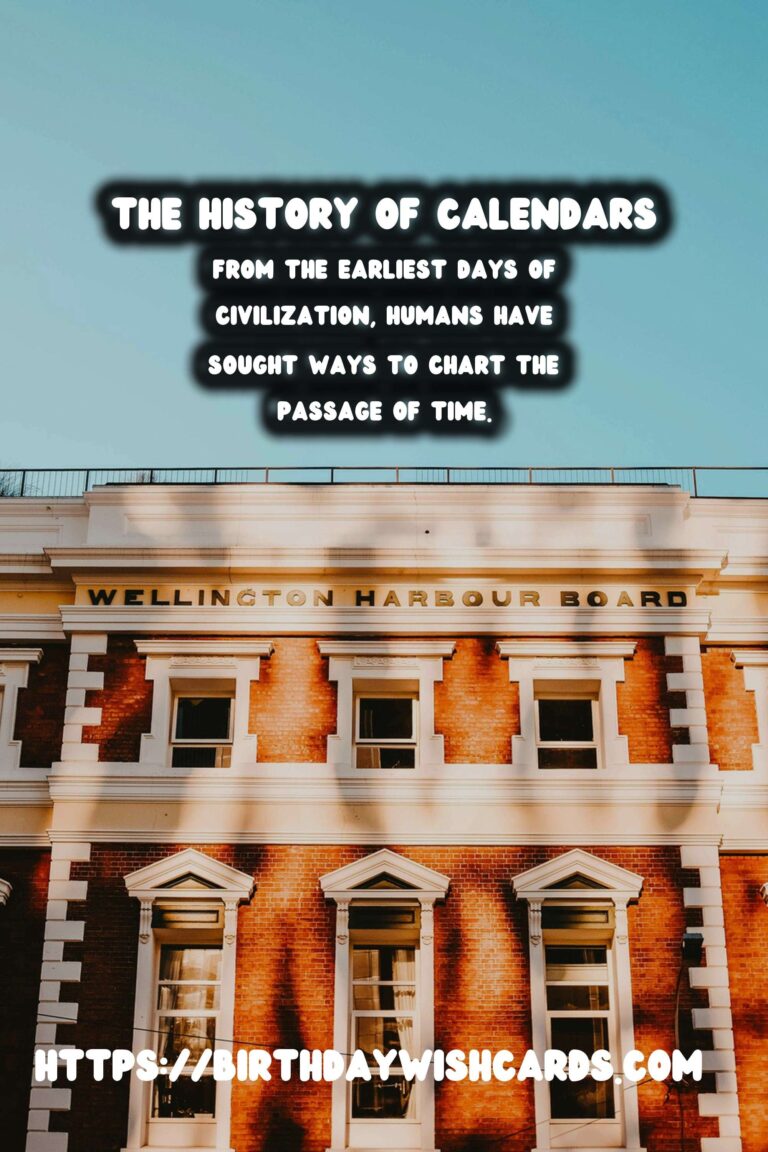
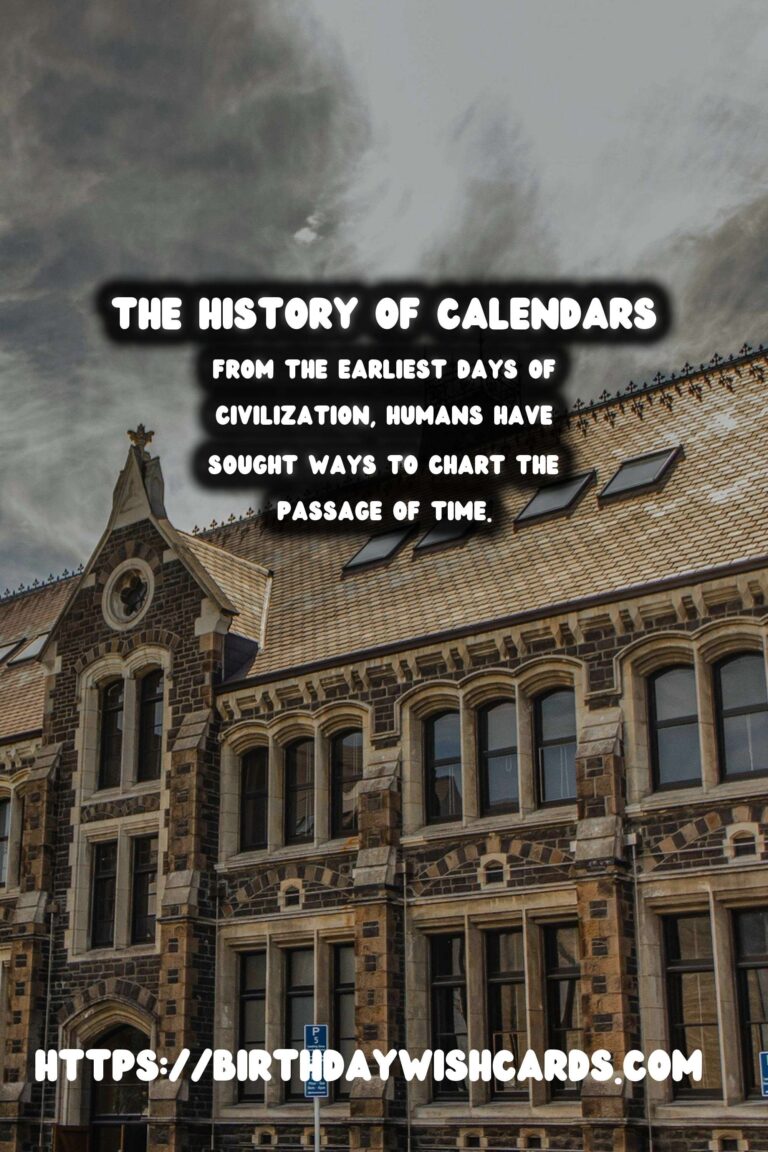
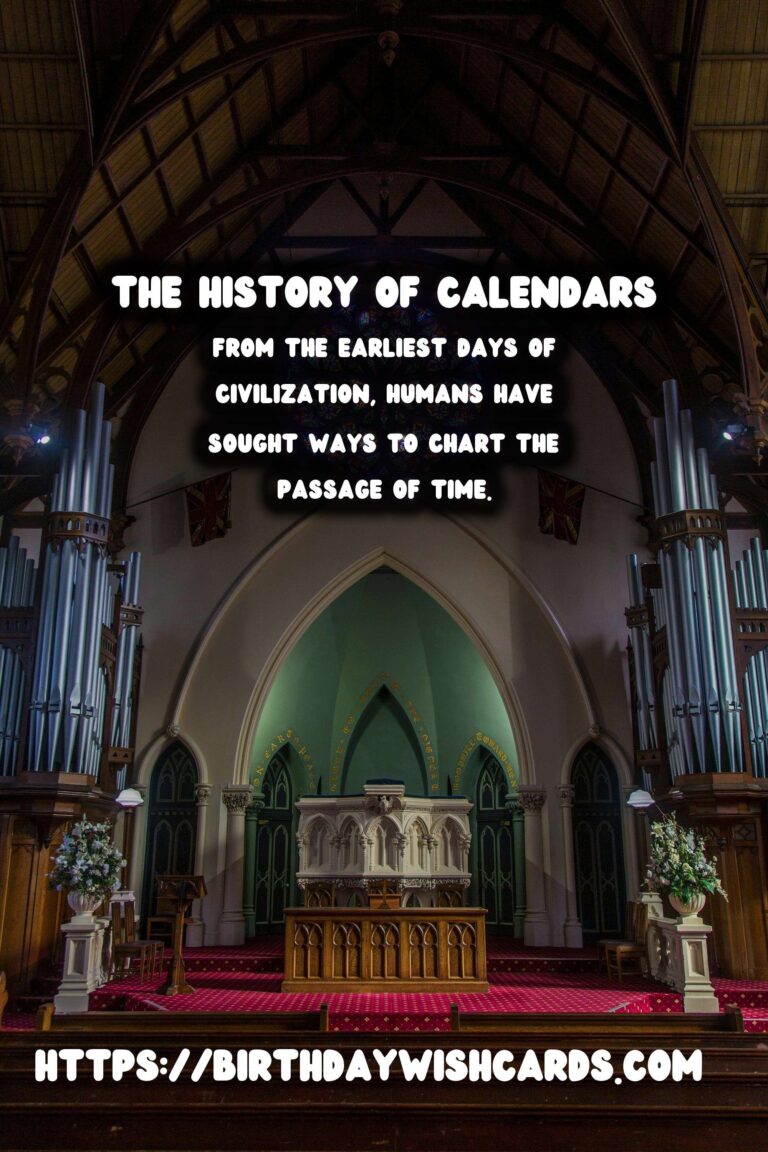
#History #Calendars




